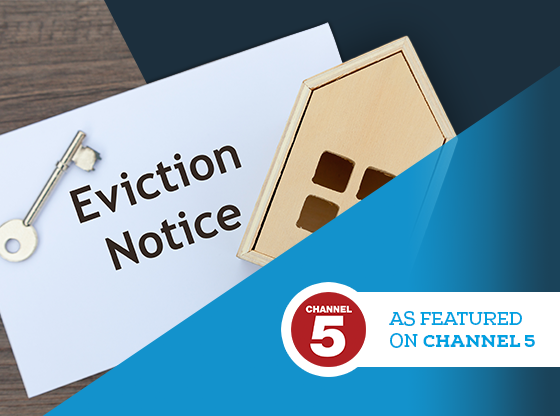We recently acted for a landlord in relation to a tenants’ application for a rent repayment order and have now received the Tribunals decision. The tenant applied to the First-tier Tribunal (Property Chamber) for 12 months’ worth of rent to be repaid to them resulting from our client letting an unlicensed house in multiple occupation which required a license.
Section 40 of the Housing and Planning Act 2016 provides that a rent repayment order is an order requiring the landlord under a tenancy of housing in England, to repay an amount of rent which has been paid by a tenant.
Section 41 of the Act sets out that a tenant may apply to the First-tier Tribunal for a rent repayment order against a person who has committed an offence and the circumstances in which a tenant may apply to the First-tier Tribunal.
A First-tier Tribunal may make a rent repayment order if it is satisfied beyond reasonable doubt that a landlord has committed an offence to which chapter 4 of the Housing and Planning Act 2016 applies. Those offences are:
- Violence for securing entry to the let property contrary to s.6(1) of the Criminal Law Act 1977
- Eviction or harassment of occupiers contrary to s.1(2), (3) or (3A) of the Protection from Eviction Act 197
- Failure to comply with an improvement notice contrary to s.30(1) of the Housing Act 2004
- Failure to comply with a prohibition order contrary to s.32(1) of the Housing Act 2004
- Controlling or managing an unlicensed HMO contrary to s.72(1) of the Housing Act 2004
- Controlling or managing an unlicensed property contrary to s.95(1) of the Housing Act 2004
- Breaching a banning order contrary to s.21 of the Housing and Planning Act 2016
In this particular case, there was no dispute that our client had committed an offence under s.72 of the Housing Act 2004 in that they had let out an HMO which required a license but did not have such license in place. The Tribunal was therefore bound to find that our client had indeed committed an offence.
It should be noted at this point, the amount of a rent the Tribunal can order to repaid in relation to this offence cannot exceed 12 months’ worth of rent nor can it require the landlord to repay more rent than the tenant actually paid (see s.44 of the Housing and Planning Act 2016).
When deciding on the amount of rent to be repaid, the Tribunal must have regard for the conduct of the landlord and the tenant, the financial circumstances of the landlord and whether the landlord has at any time been convicted of any of the above-mentioned offences.
The Applicant tenant claimed that the landlord has committed an offence, being that the landlord has allegedly harassed the tenant and the tenant included various correspondence between the landlord and tenant. The landlord had sent various strongly worded letters to the tenant claiming for council tax which the landlord was responsible for. The Tribunal in passing commented that the criminal standard of proof is much higher than the civil standard of proof, and the Tribunal was not satisfied that this high threshold had been met in relation to the alleged offence of harassment.
As expected, the Tribunal found that our client had committed the offence, the issue was how much rent should the Tribunal order to be repaid?
On this point, we referred to two authorities which the Tribunal agreed were relevant and authorities. Parker v Waller [2012] UKUT 301 (LC) and Fallon v Wilson [2014] UKUT 0300 (LC). These decision concern the amount of a rent repayment order under the provisions of the Housing Act 2004. The Tribunal confirmed that these authorities remained relevant authorities under the Housing and Planning Act 2016.
According to these authorities, the Tribunal proceeded on the basis that (i) there is no presumption that there will be a 100% refund of rent payments made, (ii) the benefit obtained by the tenant in having had the accommodation is not a material consideration, (iii) the Tribunal has a general discretion which must be exercised judicially, and (iv) the net benefit received by the landlord from the letting is a material consideration.
It was submitted that our client had been interviewed by the local authority as to the offence and the local authority were planning to issue a financial penalty of £2,500.00 for this same offence. The Tribunal was turned to the fact this the tenants right to apply for a rent repayment order was not to compensate the tenant, but rather to act as a penalty for non-complying landlords. The penalty is to proportionate to the breach and the circumstances of each case.
After considering the rental income, our clients’ outgoings such as council tax and mortgage payments together with the conduct of our client, the Tribunal ordered our client to repay the applicant tenant £219.34 being the minimum amount of rent, substantially lower than the tenant was claiming for.
If you have an application against you for a rent repayment order, please contact our experts.
Author: Sasha Charles
Date: 07 February 2020











